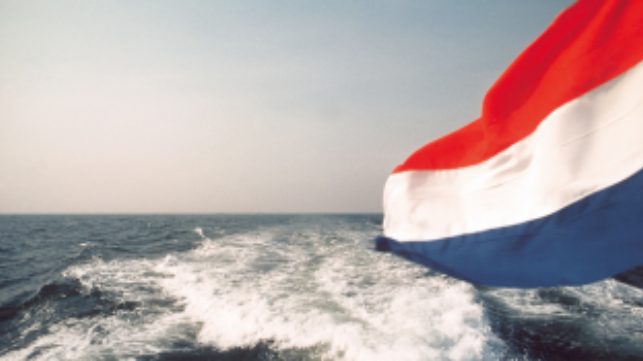Netherlands Will Vaccinate Seafarers Working on Dutch Ships

Seafaring organizations have been highlighting the challenge of vaccinating seafarers during the pandemic calling for special programs and considerations that recognize their role as key workers in the global supply chain. Responding to the need, the Netherlands announced that starting in mid-June all seafarers regardless of nationality who work on seagoing vessels under the Dutch flag or under Dutch management will be eligible for COVID-19 vaccinations under a program managed by the Royal Association of Dutch Shipowners (KVNR).
The shipowners association reports that the Netherlands’ National Institute for Public Health and the Environment (RIVM) has been explored in recent months to what extent seafarers would be able to make use of the regular national vaccination strategy, or whether a separate approach was necessary, given the special characteristics of the group. The outcome of this survey confirmed that seafarers required a separate approach.
"As shipowners, we are grateful that the Dutch government recognizes the need to vaccinate seafarers through a tailor-made program and has given us the confidence to implement this valuable vaccination program," said KVNR director Annet Koster.
Because seafarers only spend a limited amount of time in the Netherlands, during leave or to travel home or to a ship, the vaccines will be available in installments starting in mid-June and spread over months to coincide with when seafarers are in the Netherlands. A total of approximately 49,000 Janssen vaccines will be made available with each seafarer only needing a single injection.
The KVNR, in consultation with the parties involved and the Ministry of Infrastructure and Water Management, will play a central role in the logistical development of the vaccination program. Vaccination will take place in several larger ports and at Schiphol. The vaccines are being made available free of charge by the Minister of Health, Welfare and Sport, while the costs for the logistics and the actual vaccination are borne by private parties in the maritime sector.

that matters most
Get the latest maritime news delivered to your inbox daily.
“We have to get ahead of that problem now. The risk of an infected ship is too great, after all, acute medical care is not immediately available at sea,” highlighted Koster. “Thanks to this vaccination program, the continuity of the service provided by Dutch ships can also be guaranteed.”
The program was developed in close consultation with the Dutch government, the Association of Hydraulic Engineers, the Shipowners' Association for Sea Fisheries, and the Nautilus International trade union.
